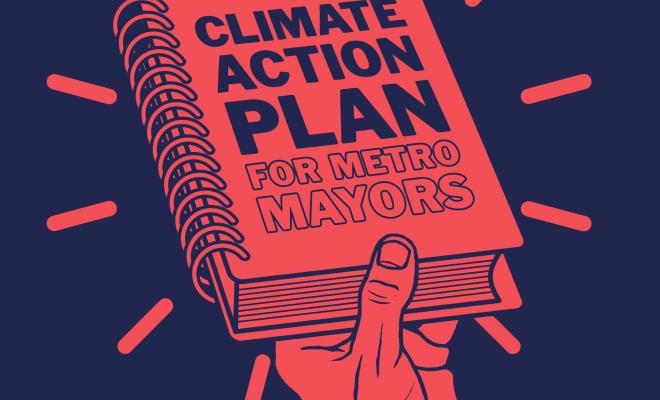21 Aug 2025
What can the next Mayor do for people and planet?
We're facing a climate and ecological emergency – the biggest threat we’ve ever seen to humanity’s existence. Whoever is elected as the next Mayor of Greater Manchester can’t single-handedly solve the crisis, but they must use the powers they have to make as big a difference as possible. They have a very important role to play in providing a guiding vision for the area, and will need to work with councils, businesses, local communities and the national government.
The Greater Manchester Combined Authority (GMCA) has had a Five-Year Environment Plan in place since 2019, with an ambitious target to be carbon neutral by 2038. GMCA’s own monitoring shows that, while some progress has been made, for example in increasing local renewable energy generation, action needs to be accelerated in several areas, including retrofitting homes to a high energy efficiency standard. GMCA scored above average in Climate Emergency UK’s Council Climate Action Scorecards, which assessed all UK councils on the actions they've taken towards net zero. However, analysis by Manchester Friends of the Earth in its Climate Report Card shows that the next Mayor needs to take bolder action to meet GMCA’s targets. This Climate Action Plan will help the next Mayor do this using the devolved powers and funding granted to them.
How green is Greater Manchester?
10 priorities for the next Mayor
- Ensure all plans, programmes and investment decisions are in line with what’s needed to address the climate and ecological emergency and are aligned with international, national, regional and local carbon reduction targets.
- Ensure that the voices of those most impacted by climate breakdown and nature loss are heard and given centre-stage in decision making.
- Support new green jobs. Protect workers and communities through a just transition to a low-carbon, nature-rich, circular economy, including linking skills training to low-carbon jobs.
- Ensure new housing is zero carbon and served by sustainable transport using their strategic planning powers and influence on constituent local planning authorities. Use brownfield regeneration and affordable housing funding to deliver zero-carbon homes in locations accessible by public transport and active travel.
- Take a leading role in bringing existing homes in the area up to high energy efficiency standards to reduce emissions and put an end to fuel poverty. Ensure that existing homes are protected from extreme weather events.
- Increase the ambition to cut car use to 50% of trips by 2030 instead of 2040, and scale and speed up action to meet this target. Set out a plan to achieve interim World Health Organization (WHO) air quality standards by 2030.
- Support the continued development and implementation of Local Area Energy Plans (LAEPs) to increase the supply of clean, renewable energy, including supporting community energy initiatives and rapidly accelerating the roll-out of heat pumps.
- Lead on the rapid development of an implementation plan for the pilot Local Nature Recovery Strategy (LNRS) with clear actions and targets. These should include doubling tree cover across Greater Manchester by 2050, halting the extraction and destruction of any peat across the region, and eliminating green space deprivation.
- Lead the development of a circular economy strategy for the area with local businesses and local authorities to both cut waste and resource consumption and boost the green economy.
- Make public statements calling on the local government pension scheme to divest from fossil fuels. Engage directly with the local authorities that control these funds, encouraging them to make immediate commitments and a timebound transition plan to divest from all fossil fuels.


